Life
Sign up for our newsletter
We summarize the week's scientific breakthroughs every Thursday.
-
 Animals
AnimalsStink bug moms are color conscious when it comes to their eggs
P. maculiventris moms control the color of their eggs, seemingly pairing darker eggs with darker surfaces.
-
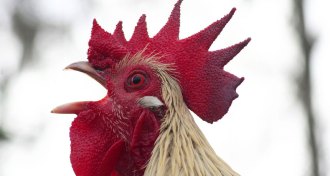 Animals
AnimalsSocial pecking order gives roosters something to crow about
Small groups of laboratory roosters keep to the rankings for orderly morning crows.
By Susan Milius -
 Paleontology
PaleontologySudden heat spikes did in Ice Age’s mammoth mammals
Abrupt warming and excessive hunting by ancient humans were responsible for the disappearance of many large mammals, including woolly mammoths, during Earth’s last glacial period.
-
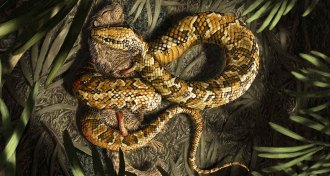 Paleontology
PaleontologyMuseum fossil links snakes to lizards
Scientists have discovered the fossilized remains of the first four-legged snake. The fossil bridges the gap between snakes and lizards.
By Meghan Rosen -
 Life
LifeCells from grandma help keep fetus safe
Grandmother’s cells may watch over grandchildren in the womb.
-
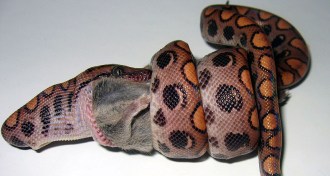 Animals
AnimalsBoas kill by cutting off blood flow, not airflow
Boas actually kill by constricting blood flow of their prey, not suffocating them, as scientists previously suspected.
-
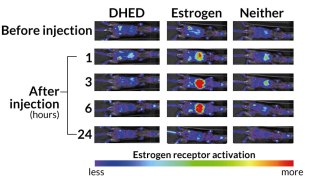 Neuroscience
NeuroscienceBoosting estrogen, only in the brain
Scientists have developed a chemical that transforms into the hormone estrogen in the brain, but not the body, of rats.
-
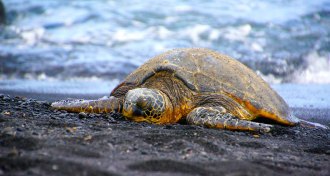 Animals
AnimalsSea level rise threatens sea turtles
Sea level rise is causing coastal areas to be inundated with water. Even short periods of being wet can kill sea turtle eggs, a new study finds.
-
 Science & Society
Science & SocietyMicrobes may be a forensic tool for time of death
By using an ecological lens to examine dead bodies, scientists are bridging the gap between forensic science and the ecological concept of succession.
-
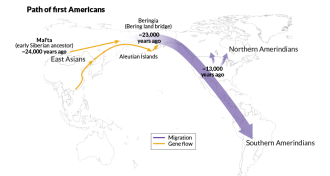 Genetics
GeneticsResearch teams duel over Native American origins
Genetic link between Australia and the Amazon fuels two interpretations of Native American origins.
-
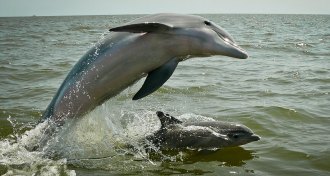 Animals
AnimalsEyewitness account of a dolphin birth takes a dark turn
Scientists witnessed the first wild birth of a bottlenose dolphin — and an attempt at infanticide.
-
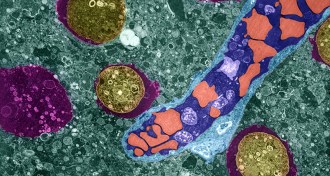 Health & Medicine
Health & MedicineDeath by brain-eating amoeba is an inside job
Immune response to brain-eating amoeba may be the real killer.